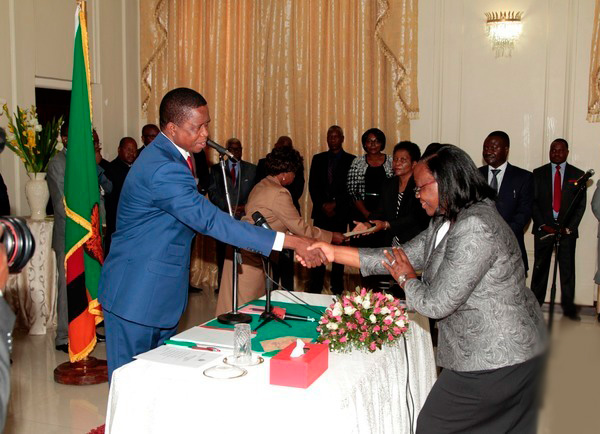Zambia has undertaken presidential and other elections on 11 August 2016. On 15 August 2016, the Electoral Commission of Zambia declared the incumbent Edgar Lungu the winner of the presidential election. However, presidential candidate Hakainde Hichilema has claimed that election results were manipulated by the Electoral Commission to favour the incumbent.
![]() Download this press statement in PDF
Download this press statement in PDF
Article 128(c) of the Constitution of Zambia (Amendment) Act of 2016 provides that the Constitutional Court has jurisdiction to hear disputes related to presidential elections. Article 103(2) sets a timeframe of 14 days within which disputes relating to presidential elections have to be ‘heard’ by the Constitutional Court.
On 19 August 2016, presidential candidate Hichilema has petitioned the Constitutional Court. However, the Court’s record shows that technical irregularities and preliminary applications have consumed the 14 days period.
On the fourteenth day, Friday 2 September 2016, five Constitutional Court judges unanimously adjourned the ‘hearing’, thereby extending the 14 days timeframe. The grounds for the adjournment were the need to consider the Bill of Rights provisions of the Constitution, and the impracticality of 14 days for a fair hearing.On Monday 5 September 2016, the date fixed for hearing, Judge Sitali (one of the five judges) announced that three of the five judges have met over the weekend and have decided to reverse the unanimous decision. In their ‘new’ decision, the three judges found that the 14 day period had lapsed and that the Court no longer has jurisdiction to deal with the dispute. The other two judges disagreed, and wrote two dissenting opinions (Chibomba and Munalula).
The fact that three of the Constitutional Court judges have met over the weekend, excluding the other two judges and parties to the dispute, and reversing the unanimous decision that they reached in a court procedure held in public, fails to meet the requirements of independent adjudication. Extra-judicial influence on the independence of the judiciary either by judges or politicians, regardless of the individuals involved, infringes on the principles of a fair trial. By informally reversing the Court’s formal decision, the three judges have extra-judicially quashed the judicial decision. This action of the three judges strongly suggests that extra-judicial pressures are elevated above formal adherence to the procedures of the Constitutional Court of Zambia.
The Centre emphasises that judicial partiality impairs the ability and credibility of courts to safeguard the right to a fair trial, and condemns judges, politicians and all bodies that violate the independence of the judiciary. The Centre also calls on the media, individuals, civil society organisations and others to vigilantly disclose instances of judicial partiality.
The Centre for Human Rights in particular makes the following call:
- The Centre calls on the Judicial Complaints Authority of Zambia to investigate the allegation of misconduct of the three Constitutional Court judges; and in the event that it finds that they have breached the independence and impartiality of the Court, to hold them accountable.
- The Centre calls on Mónica Pinto, the United Nations Special Rapporteur on the Independence of Judges and Lawyers, to inquire into the allegation of the judicial misconduct of the aforementioned three judges of the Constitutional Court of Zambia.
For more information, please contact:
Prof Michelo Hansungule
Professor in Human Rights Law
Centre for Human Rights
University of Pretoria
Tel: +27 (0) 12 420-4532
Email: michelo.hansungule@up.ac.za


